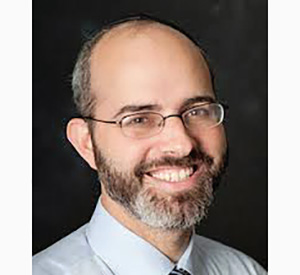
May these words of Torah serve as a merit le’iluy nishmat Menachem Mendel ben Harav Yoel David Balk, a”h.
This week we learned Menachot 2. These are some highlights.
If one is reading Shema knowing that he will have to repeat the paragraph, does he need to observe the laws of Shema during the reading?
Shu”t Torah Lishmah (Siman 32) discusses a man who did not have the correct intentionality when he read the first sentence of Shema. According to the halacha, we are obligated to have kavana, intentionality, when we read the first sentence of Kriat Shema. If you did not have kavana when you read the first sentence of Kriat Shema, you should repeat the Shema from the beginning (Shulchan Aruch Orach Chaim 63:4). This creates a problem. Heretics believed in a duality of deities. We are to silence a person who says Shema, Shema. How then are we to go back to the beginning when we made a mistake and read the first sentence of Shema without kavana? Wouldn’t it be an act that seems heretical (Shema, Shema) and is supposed to be silenced? There are several proposed solutions by the poskim for this problem. The Sefer Chareidim suggests that once you realize that you did not have kavana when you read the first sentence you should immediately go back to the beginning and again recite Shema, but you should read Shema quietly. It is only a person who loudly declares Shema twice who is silenced. By reading Shema quietly you have avoided the problem of sounding like a heretic. Other poskim suggest that when you realize you forgot to have intention when saying the first sentence, you should wait for a while and then go back to the beginning of Shema. It is only a person who recites Shema immediately after reciting Shema who sounds heretical. By waiting before repeating a person avoids this problem. A third solution is to complete the entire first paragraph of Shema and then return to repeat the paragraph. It is a person who repeats the sentence “Shema Yisrael Hashem Elokeinu Hashem Echad” who sounds heretical and should be silenced. A person who says the entire first paragraph twice does not sound like he is expressing a heretical belief. Torah Lishmah’s questioner comments that it is the norm in their community to avail themselves of the third option. If a person realizes that he had recited the first sentence of Shema without kavana, he continues and completes the entire first paragraph. Then he would go back and repeat the entire first paragraph. The questioner wonders about the status of this recital. Normally there are halachot of how to recite Kriat Shema. A person is not allowed to signal with his finger or wink with his eye when reciting Kriat Shema. A person should try to have kavana throughout his recital of Shema. What about this Kriat Shema? It is not really the mitzvah of Kriat Shema. It is merely Torah study. Would a person who is reciting Shema words just to avoid the appearance of heresy still need to be careful with the laws of Shema?
Torah Lishmah utilizes our Gemara to teach that the person reciting Shema just to make sure that he does not sound like a heretic still needs to be careful with the laws of Shema. Our Gemara, like the Gemara in the beginning of Zevachim, discusses a person who offers a sacrifice for the wrong sanctity. The Gemara teaches that such an offering is fully a sacrifice with one exception: It does not fulfill the owner’s obligation. If a man slaughters an olah as a shelamim, he still needs to perform all the other acts of service in the right way. The Gemara gives two explanations for this rule—logic and a verse. The verse teaches that once a sacrifice did not fulfill the vow it was donated for it will still function as a donation to Hashem. Donations need to be offered the right way. Logic dictates the same. Just because a person performed one misdeed and slaughtered the olah as a shelamim, that does not mean he should now perform further misdeeds. One thing was done wrong, but everything else should still be done right. Our case is similar. Due to lack of intention when reciting the first sentence, this paragraph of Shema will not fulfill the obligation of the one speaking. One wrong should not be compounded with further wrongs. Like an offering shelo lishmah, our reciter should keep all the laws of Shema when he continues to recite the first paragraph. He should be careful not to wink his eyes or signal with his fingers when reciting the verses and he should be careful to have kavana while reciting the paragraph. The paragraph will not fulfill any obligation of the person reciting it, but it should still be recited in the right way. Once a person has started a mitzvah, even though by mistake it will not fulfill any obligation of the master, it should still be finished in the right way. (Sdei Tzofim)
By Rabbi Zev Reichman
Rabbi Zev Reichman teaches Daf Yomi in his shul, East Hill Synagogue.










